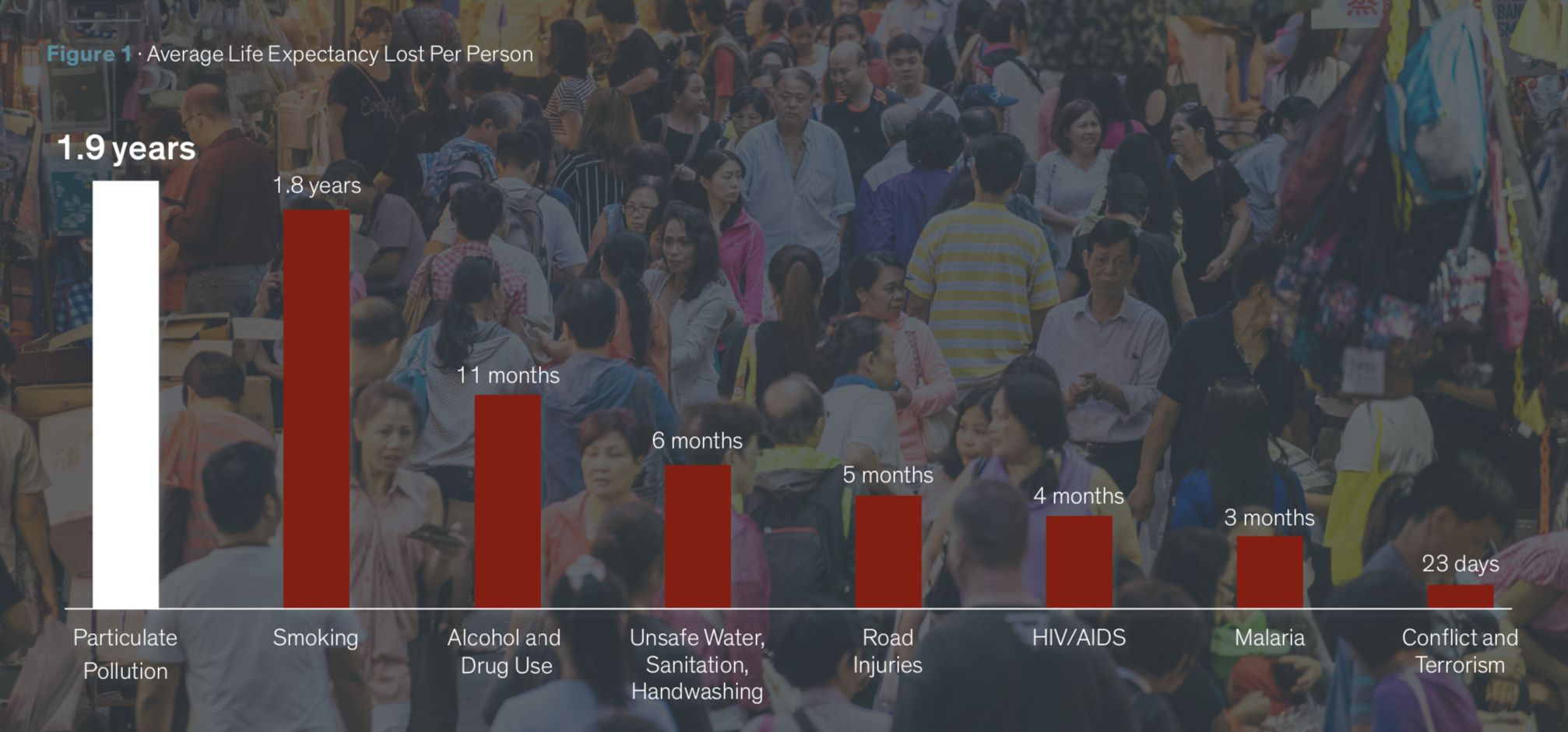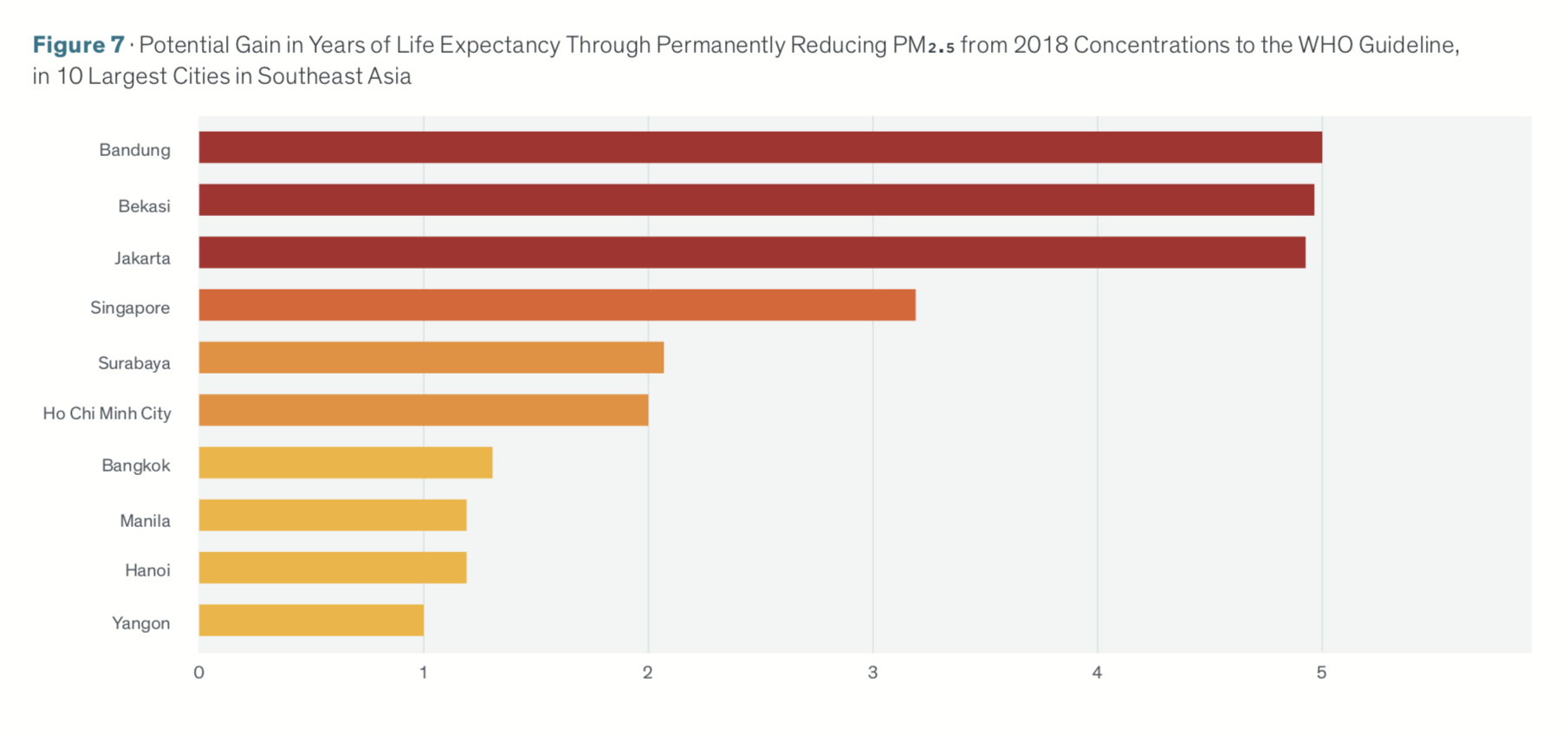How Air Pollution Reduces Life Expectancy - The Air Quality Life Index
Over the past few years, the impact of air quality on our health is becoming more apparent through very specific research in the field. Exposure to unhealthy levels of PM2.5 has an impact on us in both the short and long term, but sometimes it's difficult for us to really understand what that actually means.
What is the Air Quality Life Index
The Air Quality Life Index was developed by EPIC, the Energy Policy Institute at the University of Chicago as a way to prove to us that air pollution is the world’s leading threat to life expectancy. According to the World Health Organization, more than 7 million people die each year as a result of air-pollution related illnesses1, and the AQLI translates long-term exposure to particulate pollution concentrations into their impact on life expectancy.
The WHO’s guideline for PM2.5 exposure is 10 micrograms per cubic meter (μg/m3), which corresponds to the lowest level of long-term exposure that the WHO found to raise mortality with greater than 95% confidence.2
Air Pollution Is The Greatest Risk To Human Health
The AQLI’s core finding is that sustained exposure to an additional 10 micrograms per cubic meter (μg/m3) of PM2.5 reduces life expectancy by 0.98 years. According to the study, air pollution is the greatest risk to human health. The average life expectancy lost per person due to air pollution is 1.9 years, even more than smoking, alcohol & drugs or even conflict. With many countries globally experiencing high economic growth, unless action is taken these numbers will only increase.

Jakarta Residents Lose 4.8 Years of Life Expectancy
Indonesia has the 9th highest air pollution in the world, and the city of Jakarta consistently has unhealthy air quality levels throughout the year. According to the AQLI, sustained exposure to the levels of air quality in Jakarta increases the risk of losing up to 4.8 years of life. The continued

What Can Individuals Do To Protect Themselves
It’s simple - the less polluted air we breathe, the better our health can be. That’s why in cities like Jakarta it is important for us to keep track of air quality outdoors and adapt our lifestyle to the levels of pollution. If the air quality is “Unhealthy” or above, it’s best to reduce time outdoors, especially if you’re exercising. But when it’s “Moderate” or “Unhealthy for Sensitive Groups”, outdoor exposure can be less risky.
To learn more about the Air Quality Life Index, click here.
To download the 2020 Annual Report, click here.
To download the 2020 Indonesia Fact Sheet, click here.